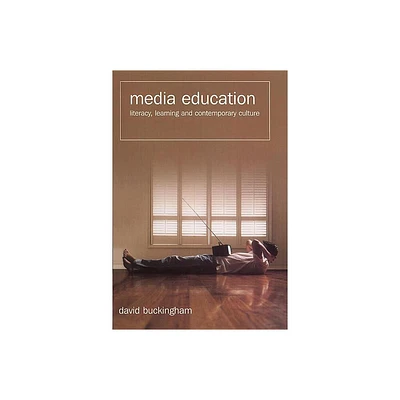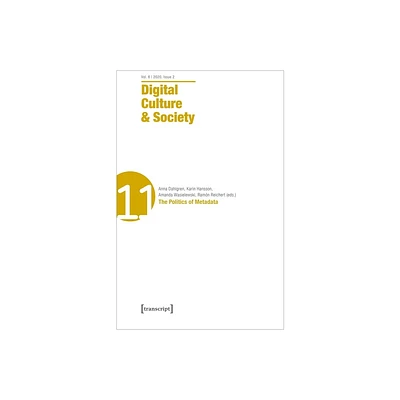Home
Digital Cultures: Postmodern Media Education, Subversive Diversity and Neoliberal Subjectivation
Loading Inventory...
Barnes and Noble
Digital Cultures: Postmodern Media Education, Subversive Diversity and Neoliberal Subjectivation
Current price: $99.99


Barnes and Noble
Digital Cultures: Postmodern Media Education, Subversive Diversity and Neoliberal Subjectivation
Current price: $99.99
Loading Inventory...
Size: Paperback
*Product Information may vary - to confirm product availability, pricing, and additional information please contact Barnes and Noble
David Kergel explores the questions of how free and self-determined we are in the digital age, whether the Internet encloses us or whether it opens up new spaces for diversity and education. The starting point is the thesis that the Internet is both heritage and future: postmodern spaces of freedom and neoliberal fixations of the electronic age unfold in the ubiquitous cultural space that digital media span. At the same time, the Internet restructures social spaces in the 'analog world', digitalizes self/world relations or forms digital cultures, which in turn form ourselves. For dealing with the ambivalence of the Internet between postmodern diversity and neoliberal subjectification, an understanding of media education based on educational theory is proposed.
This book is a translation of the original German 1st edition
Kulturen des Digitalen
by David Kergel, published by Springer Fachmedien Wiesbaden GmbH, part of Springer Nature in 2018. The translation was done with the help of artificial intelligence (machine translation by the service DeepL.com). A subsequent human revision was done primarily in terms of content, so that the book will read stylistically differently from a conventional translation. Springer Nature works continuously to further the development of tools for the production of books and on the related technologies to support the authors.
This book is a translation of the original German 1st edition
Kulturen des Digitalen
by David Kergel, published by Springer Fachmedien Wiesbaden GmbH, part of Springer Nature in 2018. The translation was done with the help of artificial intelligence (machine translation by the service DeepL.com). A subsequent human revision was done primarily in terms of content, so that the book will read stylistically differently from a conventional translation. Springer Nature works continuously to further the development of tools for the production of books and on the related technologies to support the authors.


















